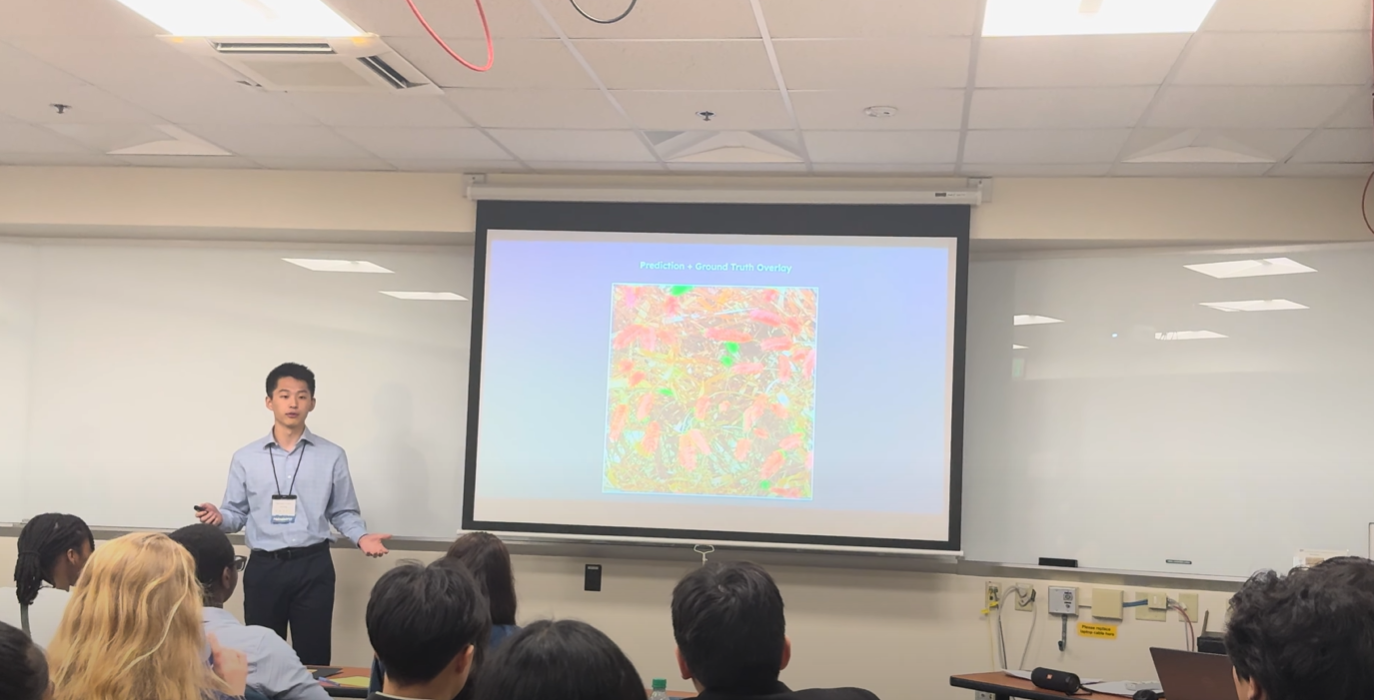|
By: Justin Zulu Glenelg has always been a place full of opportunities for growth and to expand one’s knowledge. The school has numerous programs to challenge students mentally, and to push them to go above and beyond in their learning. The Independent Research and GT Mentorship program is no exception. Established in 1990 and currently led by Leila Chawkat, IR and Mentorship offer many students lifelong skills and abilities that contribute to their overall success as writers, thinkers, and humans. An integral component of the IR program involves the learning about, and application of, research to prepare students for the process of choosing and answering their own research question. “In our class, rather than a major test or paper at the end of the year, our students are expected to contribute to the world of research,” Chawkat said. “We tend to think that any words we read on the internet automatically have to be true. And they are not, so students not only learn to distinguish between trash and legitimate research, but inside of the many research studies they find and use to support their own claims, they learn to be skeptical of how other’s research is conducted.” Over the course of several months, students choose a topic they are passionate about and learn to ask a good research question. They extensively conduct research to produce a paper that argues a thesis related to their question, a presentation that shares their findings, and a product that contributes new knowledge to the field of the research. This school year, some of the wide ranging topics in Independent Research include: *Wawira Waiganjo, sophomore (Nature of discrimination that black women face in the workplace based on their hairstyles), *Evalyn Alger, sophomore (The most lucrative monetization models for MMO (Massively Multiplayer Online) video games: pay to play or subscription?), *Kaylee Merrill, sophomore (AI tech as tools that artists can use to create fine pieces of art), *Danny Aguranov, junior (Advocating for a new protocol for pilots to address mental health concerns without risk of losing their jobs), and *Brody Hayden, sophomore (Studying a gene called APOEe4 and its connection to Alzheimers). “You get to really learn how important and valuable research is,” said junior IR student Maddie Stouffer, who researched how yoga helps impact athletes’ mental health. “The course helps expose the depth required to conduct proper research, and it has given me the necessary tools and confidence when it comes to research in other classes.” Part of the reason, according to Stouffer, why students enjoy taking the IR or Mentorship program is because of Chawkat. “Ms. Chawkat is a very understanding person,” Stouffer said. “If you can’t get an assignment up in time she may give an extension. And if you don’t perform well on an assignment she provides the opportunity to correct it. Everything she says is very clear and she is always kind and supportive.” Junior Laura McCoyd, who has taken IR for two years and is currently studying PTSD in veterans and different therapies that can help them, also credits the impact of Chawkat’s mentorship on her development. “Ms. Chawkat has challenged the standard way of learning in school,” McCoyd said. “She puts the learning onto the student and guides them, but she doesn’t force you to learn a certain way. She's also there for you to fall back on, so if you are struggling she's there to help you. She's also very positive and never focuses on the negative – only on improvement.” The IR program and GT Mentorship are some of the most rigorous programs the school offers; each requires an application with two teacher recommendations, but mentorship includes having a completed resume and a short interview. Though the coursework, assignments, and expectations may be challenging, Chawkat allows students the opportunities for breaks. Some days, they bring in food and the class relaxes and watches a movie. “It is impossible to give the standard assessments you would expect in another GT class,” Chawkat said. “Everyone works at their own pace and deadlines are super flexible. A big expectation of my course is that my students interact with the experts in their fields: students learn to conduct professional interviews with them, use them as sources in their work, and establish a network of professionals that may guide their future endeavors.” Independent Research is the first in the two courses that make up the GT Research program. The second one is Mentorship, which is reserved for juniors and seniors. Independent Research tends to draw freshman and sophomores, but anyone of any age can take it. Mentorship is a research class where students pick a topic and then go to an internship and collect data and find sources in order to come to support a research thesis statement. “My research focused on student-teacher relationships, specifically in elementary school and why it is so important to build a positive student-teacher relationship at that age,” said senior Fatima Ali. “This is my first year in mentorship and I wanted to do it because I want to go into teaching; Mentorship gave me first-hand experience with a topic I was curious to know more about. “We’ve also had two conferences so far,” continued Ali, “where we delivered presentations with other HOCO schools with students who had similar topics. Internships and presentations allow us opportunities to strengthen our skill sets before we graduate.” Chawkat would be the first to speak about the benefits for students to consider IR or Mentorship, especially if they are continuing their education beyond high school. “No matter what a student wants to study in college, they will be doing original research,” Chawkat said. “Mastering the skills a student needs to conduct primary research would be absolutely advantageous for anyone entering college.”
0 Comments
Leave a Reply. |
Archives
May 2024
|
